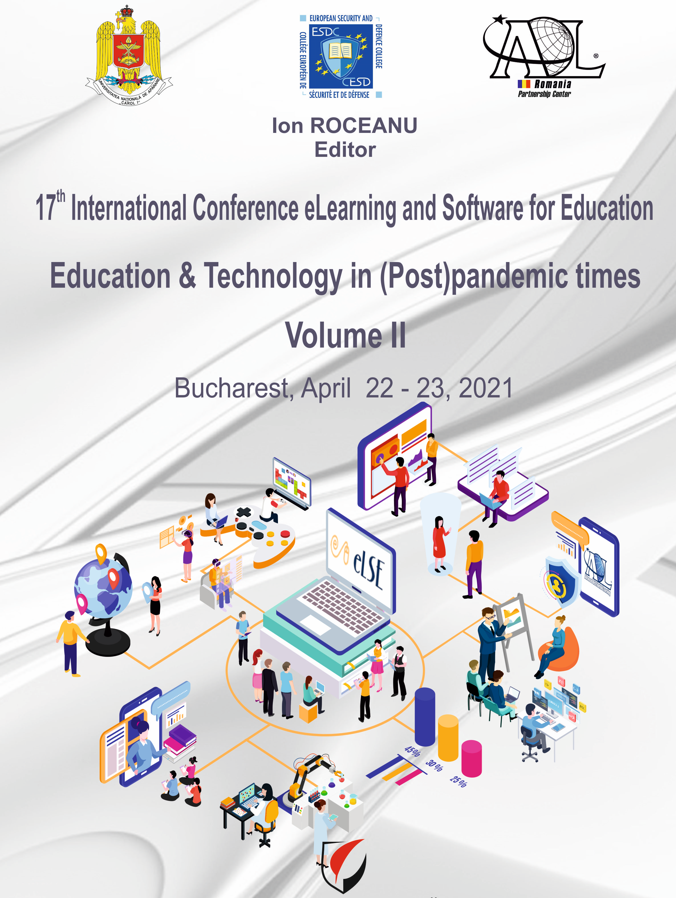E_LEARNER SUPPORT IN AN EXPERIENTIALLY DRIVEN FRAME OF TEACHING/TRAINING APPROACH
E_LEARNER SUPPORT IN AN EXPERIENTIALLY DRIVEN FRAME OF TEACHING/TRAINING APPROACH
Author(s): Doina Irina SimionSubject(s): Education, Distance learning / e-learning
Published by: Carol I National Defence University Publishing House
Keywords: experiential education; reflection; Kolb; learner support; EXTEND;
Summary/Abstract: Connectivity has brought many challenges to education in general and academic education in particular. A most sensitive one is the challenge to the experiential approach. The electronic barrier may have a significant impact upon the design, delivery, form or timing of most offers of direct learner experience in teaching or training. Nevertheless, there are three features that ensure its attraction despite obstacles. First, the motivational boost inherent in any personal experience is still likely to enhance the outcome of any quality educational act: knowledge, skills or attitudes. Furthermore, the scope for an experiential approach as a teaching/training philosophy in the online context does not differ from the classroom context: it may be implemented at the pre, while or post-course learner support stages. Finally, it can also be activated in the transmission, teacher centred stage of knowledge delivery as well as in the transformational stage of learner centred processing. The present paper reports on the results of implementing an experiential approach in the post-stage of the English for Professional Communication course. The subjects were first year students of e_engineering (electronics and computer science) at the University Politehnica of Bucharest. The students were asked to resort to self-managed group e_work tasked to devise the questions that they thought relevant for a course feedback questionnaire. This kind of task partly draws on three stages of Kolb’s experiential learning cycle, i.e. concrete learning, reflective observation, and abstract conceptualization. The paper also deals with ways of implementing an experiential approach in the practice stage of activities to be delivered by trainers / trainees involved in the EXTEND project.
Journal: Conference proceedings of »eLearning and Software for Education« (eLSE)
- Issue Year: 17/2021
- Issue No: 02
- Page Range: 393-402
- Page Count: 10
- Language: English

